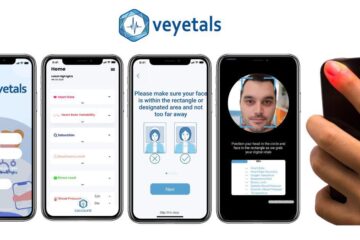Image Credit: Unsplash, free of rights
Stress is a normal part of life. It helps us cope with challenges, motivate ourselves, and learn new skills. But when stress becomes chronic, or long-lasting, it can have serious consequences for our physical and mental health.
Chronic stress is the physiological or psychological response induced by a long-term internal or external stressor1. The stressor, either physically present or recollected, will produce the same effect and trigger a chronic stress response. This means that our body and mind are constantly in a state of alertness, ready to fight or flee from danger.
This can lead to a range of symptoms, such as:
- Aches and pains
- Insomnia or weakness
- Less socialization
- Unfocused thinking
- Anxiety or depression
- Irritability or anger
- Digestive problems
- High blood pressure or heart disease
- Weakened immune system23
Chronic stress can also affect our behavior and choices. We may resort to unhealthy coping mechanisms, such as smoking, drinking, overeating, or gambling. We may neglect our self-care, such as exercise, relaxation, or hobbies. We may isolate ourselves from others who can support us. We may lose interest in our work, relationships, or goals3.
So how can we prevent chronic stress from ruining our life? The first step is to identify the sources of chronic stress in our life. They can vary depending on each person’s situation and personality but often fall into one of four different types:
- Emotional stress (difficult emotions such as anger, sadness, or frustration)
- Environmental stress (where you live and work)
- Relationship stress (how you relate to friends, family, co-workers, partners)
- Work stress (deadlines, demands, conflicts)3
The next step is to find ways to manage these sources of chronic stress effectively. Some strategies include:
- Eating a healthy diet, getting regular exercise, and getting plenty of sleep
- Practicing relaxation techniques such as yoga, deep breathing, massage, or meditation
- Keeping a journal and writing about your thoughts or what you’re grateful for in your life
- Taking breaks from work and technology regularly
- Seeking professional help if needed45
Chronic stress is not something to be ignored or dismissed. It can have serious implications for our well-being and happiness. By recognizing the signs of chronic stress and taking action to reduce it, we can improve our quality of life and enjoy it more fully.
Table of Contents
ToggleAbout Us
Our cloud based, lightweight API allows Veyetals to be integrated with the healthcare apps and platforms that matter to you most. The app is interoperable with other healthcare management systems including, but not limited to, SenSights.AI. Veyetals drives information sharing with other health management solutions and further enhances the continuum of patient care.
Download our FREE app here
Follow us on LinkedIn at veyetals.com for more updates
Sources:
- 1: Chronic Stress – Wikipedia https://en.wikipedia.org/wiki/Chronic_stress
- 2: Chronic Stress: Symptoms, Examples, Effects, and Recovery https://www.medicalnewstoday.com/articles/323324
- 3: Chronic Stress: Definition, Symptoms, Traits, Causes, Treatment https://www.verywellmind.com/chronic-stress- 3145104
- 4: Chronic Stress Puts Your Health at Risk – Mayo Clinic https://www.mayoclinic.org/healthy-lifestyle/stress-management/in-depth/stress/art- 20046037
- 5: Chronic Stress > Fact Sheets > Yale Medicine https://www.yalemedicine.org/conditions/stress-disorder



